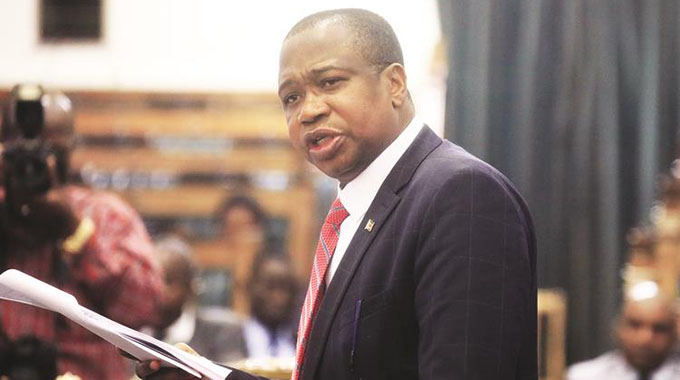Source: SI 142 buttresses Govt’s extraordinary measures | The Herald June 26, 2019

Shame Tarumbiswa Correspondent
On Monday June 24, Finance and Economic Development Minister, Mthuli Ncube made a big announcement that Government had removed the multi-currency regime and restricted domestic transactions to local currency, renamed the Zimbabwe dollar, in an effort to enhance the affordability of goods and services by the majority.
The multi-currency regime started in 2009 to stem runaway inflation and shortages of basic goods and services.
The latest extraordinary economic measures to buttress Statutory Instrument 142 of 2019 which, by-and-large outlawed the multi-currency trading regime in Zimbabwe need to be adopted by the State if the serious economic challenges affecting the citizenry are to be further addressed.
The practice by the business community of continuing to hike the prices of consumer goods is making basic commodities unaffordable to the majority of people both in cosmopolitan areas and sadly the rural communities, that traditionally support and supported the ruling party, Zanu PF, in the past elections.
Ironically owners of businesses who previously pegged their prices in United States Dollars (USD) have not paid their workers by similar margins.
The manufacturing and retail sectors alike are impervious to the Government’s progressive repeated calls for them to reduce the prices of consumer goods with utter impunity.
As a consequence of their evil actions, access to medicine and disease treatment was no longer possible for the majority of people because of the high prices which the majority could not afford. Most pharmacies were charging medicines and supplies in United States dollars. Some private doctors and health care service providers were also charging in US dollars, leaving many patients stranded.
Those who did not have access to the United States dollars were the most affected as they had no choice, but dig deeper into their pockets to buy medicines and access healthcare.
This this is a serious threat to the wellbeing of the citizenry.
Regarding agriculture, the mainstay of the economy, the majority of farmers cannot afford inputs and veterinary services previously pegged in USD which is a huge threat to the agrarian reforms. Livestock may die of diseases and the average farmer may resort to subsistence farming due to the current high prices of inputs.
The bold step taken by the State to outlaw the multi-currency basket and the designation of the local currency as a medium of local transactions is commendable.
This is the way to go as all the countries that are forging ahead with development are using their domestic currencies for all local transactions.
A few examples of countries trading with own currencies and their exchange rates suffices: Rwanda, 1 USD = 885 Franc — the Rwandese Central Bank office at Kigali Airport is full of USD changed by visitors. (An Ordinary Rwandese do not recognise the USD if given to them), Zambia, 1USD =11.52 Kwacha, Kenya, 1USD=100 Shilling, Namibia 1USD =14.5 Dollar, India 1USD = 72 Rupee, Nigeria 1USD =361 Naira etc.
Further, the State could stabilise the economy by continuing to mobilise foreign currency reserves, and, to provide measurable assistance to the productive sector for it to be able to export.
There is also a need for the State to strengthen assistance to farmers so that they grow crops such as wheat and oil seeds to achieve import substitution as well as offering competitive prices for crops that enhance food security.
Furthermore, the State may need to educate the citizenry and traders on the value of transacting in local currency as a unit and outlaw the three tier pricing structure.
Some Asian traders always have “network challenges with the swipe machines” — a deliberate way of fighting the local currency agenda. In addition, the citizenry, top-to-bottom need to be cleansed, through education, of this worrisome insatiable appetite for the US dollar and conversely, unbelievable disbelief in our own currency as a medium of trading.
There is no need to fear past experience with the Zimbabwe dollar which was punctuated by a hostile regime change agenda.
We now have international goodwill which should cushion the local currency against manipulation for political gain, provided adequate foreign currency reserves are mobilised.
While the measures being taken by the State, including the interfaces between President Mnangagwa and the captains of industry, media fraternity, chiefs, religious leaders, professional bodies, youths, among many other initiatives to address the economic challenges facing Zimbabwe are applauded, extraordinary measures need to be implemented to deal with this serious threat to national security being caused by the erosion of the citizens’ purchasing power due to the unrealistic price increases.
Industry and retail sectors must listen to the directives of Government to reduce prices of commodities, otherwise it can be inferred that their behaviour is tantamount to them being “little governments” unto themselves.
The Prime Minister of India of plus 1,3 billion citizens overnight changed the Rupee and all accepted that change instantaneously. Kenya changed its currency recently and all likewise accepted change. How on earth can Zimbabwe be given a headache by 14 million people and small number of very corrupt individuals who have meted untold harm on society? It boggles the mind!
Feedback: kuvita2009@gmail.com
COMMENTS